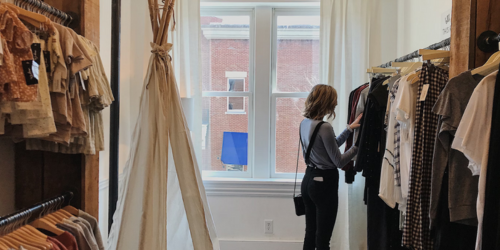The luxury retail sector has always navigated the tricky waters of counterfeit goods. These knock-offs, trying to pass off as the real deal, have been an age-old challenge for premium brands. However, today’s landscape is seeing an evolution of this issue, accelerated by platforms like TikTok.
The social media giant has popularized counterfeit luxury items, making them more accessible through dupe culture as highlighted by a new CNBC report. Following this trend, users openly share and seek out replicas that mimic high-end products, blurring the lines and making it easier for consumers to find and purchase these imitations.
For high-end retailers, this presents a modern challenge: how to uphold the value and exclusivity of genuine products in a marketplace that is increasingly normalizing the appeal of well-crafted fakes. Luxury retailers, especially in the digital domain, must confront this trend head-on, understanding its implications and devising strategies to maintain their client base and allure.
The Challenge of Dupe Culture for Luxury Retailers:
Dupe culture, wherein consumers opt for budget-friendly alternatives to high-end products, is gaining traction, driven by platforms like TikTok. This shift indicates a growing preference for value over brand prestige among younger consumers. For luxury retailers, this poses a threat to the traditional appeal of exclusivity and craftsmanship that defines luxury goods.
Learning how you can adapt to this change will be essential as more young shoppers buy into the trend.
6 Strategies to Address the Challenge:
- Elevate Brand Storytelling: Luxury retailers need to reinforce the value of authenticity, heritage, and unparalleled quality. Engaging storytelling that highlights the craftsmanship, history, and exclusivity of luxury brands creates an emotional connection with consumers and emphasizes the worth of investing in genuine luxury.
- Enhance Customer Experience: Offering superior customer experiences, both online and in-store, can set luxury retailers apart from dupe alternatives. This includes personalized services, exclusive events, and immersive shopping experiences that celebrate the luxury lifestyle.
- Leverage Digital Engagement: While maintaining their high-end appeal, luxury brands should also adapt to the digital age. This could involve innovative online marketing strategies, engaging with consumers through social media, and using technology to create interactive and personalized digital shopping experiences.
- Focus on Sustainability and Ethics: Many younger consumers value sustainability and ethical practices. Luxury brands can appeal to this demographic by showcasing their commitment to responsible and sustainable luxury, thereby differentiating themselves from cheaper alternatives.
- Cultivate Loyalty and Exclusivity: Developing loyalty programs and exclusive offerings can help retain current customers and attract new ones. Limited editions, member-only products, and loyalty rewards help make customers feel like they’re part of an exclusive club.
- Adapt Pricing Strategies: While maintaining their luxury status, brands may want to consider introducing entry-level products at lower price points. This approach can attract younger consumers or those who are new to luxury. But striking the right balance is key to prevent diluting the brand’s prestige.
The rise of dupe culture presents both a challenge and an opportunity for luxury retailers. By understanding these shifts in consumer behavior and strategically adapting, luxury brands can continue to thrive. It’s about reinforcing the unique value proposition of luxury goods and creating deeper connections with consumers who value authenticity and exclusivity.
In this challenging landscape, Sophelle offers expert guidance to luxury retailers. Our team provides bespoke strategies and insights to help brands navigate the complexities of modern consumer trends and maintain their esteemed position in the market.
Contact us to explore how we can support your brand in this new era of luxury retail.




